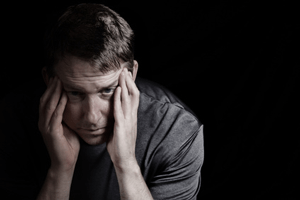 Suicide is a topic on which thousands of words have been spent. I’ll try not to cover ground already churned over well by others. I intend to focus only on uncontrollable pain and the act of suicide.
Suicide is a topic on which thousands of words have been spent. I’ll try not to cover ground already churned over well by others. I intend to focus only on uncontrollable pain and the act of suicide.
It is well known that suicide is one of the leading causes of death among our brothers and sisters who suffer from uncontrollable pain. Suicide is also one of the most misunderstood and frightening events that we can think of in relation to family and friends. Those of us who’ve been thrust into the pit of uncontrollable pain know all too well the haunting specter of constant suicidal ideation and despair that underpins its tenacious hold on so many of us.
I want to dispel one egregiously wrong-headed notion so prevalent among the public: If someone talks about suicide they are unlikely to attempt it. This serves a well understood defensive stance: no one wants to believe a friend or loved one when that person speaks openly about ending their lives. Don’t be deceived, those who talk about it are among those most likely to attempt suicide.
Our sisters make, by far, more attempts on their lives than our brothers. They employ less violent means and consequently, less means to end their lives. Our brothers are far more lethal; when they attempt to end their lives they are proficient in accomplishing their despairing goal. Our brothers more often use the most lethal methods such as hanging, leaping from deadly heights and, of course, the worst scourge, guns.
I want from the outset to pass along a dire warning: If you have a friend or relative, especially someone in your immediate family who is battered and worn from uncontrolled pain the possibility of suicide must be considered by caretakers. If one knows that the person has access to a gun, the risk of suicidal lethality jumps off the charts.
I want to be transparent on the topic of guns through the use of full disclosure. I am a board member and activist for the National Gun Victims Action Council. While we accept the court’s decision making gun possession legal, we work very hard to reduce the number of gun injuries and fatalities through sane gun laws such as rigorous background checks. I don’t bring this into the discussion to go off topic or try to influence readers of this around guns.
However, I want to make it clear that in discussing suicide the centrality of the danger of guns, especially when talking of our suicidal brothers and sisters must be frankly discussed without a detour through ideology. I am not making any attempt here to advance my position on the constitutional right of my fellow citizens to own weapons, I accept that right, but I also recognize that guns are often used in successful suicide attempts.
Research upon research has shown that guns in a household raise the likelihood of a family member being accidentally injured or killed by that gun. This is especially important when a family member suffers from uncontrolled pain. It isn’t just the thought out suicide of a person with pain (PWP) that is so lethal. The more serious and far less predictable outcome is when that person who is living with pain in momentary despair suddenly uses the gun to end his or her life.
It’s imperative that caretakers, when protecting the PWP, temporarily removed from the PWP’s home all guns or render them completely inaccessible. Temporary removal is certainly the safest measure, but well executed inaccessibility as judged by someone outside the family is certainly a next best avenue of protection.
Before exploring my ideas regarding suicide in PWPs, I want to go over some of the better known responses to heightened risk with which caretakers may be confronted.
Death is nearly a cultural taboo subject, and suicide even more prohibited topic of discussion particularly among friends and loved ones. Because of this we find the frank discussion of suicide with a PWP extremely difficult. The taboo is not only attached to open discussion, it also unconsciously circumscribes our attention and recognition of the signs of impending suicide.
We need to be aware of the PWP’s discomfort, emotional flatness and inaccessibility. We are aware that withdrawal is a sign to be noted, but we also need to be alert when the person’s usual behavior and emotions are altered. This is especially important if despair becomes not only noticeable but persistent.
I am not going to go into all the warning signs for suicide as they are readily available from the National Suicide Prevention Lifeline. This is an exceptionally good resource for anyone whose friend or loved one is suspected of or openly contemplating suicide.

Thank you Mark.
I have endured the pain from the loss of a very dear friend who was so tired and defeated from the years of fighting chronic pain. Surgery was to be the answer and when that failed to help him in the way he had hoped for, he felt he had lost his battle and could not continue to live a life of pain. I miss him.
This is a hard topic to cover, to read and to consider. It makes me sad each time I hear of someone who has taken their life because their pain was not eased, not even for brief moments. Thank you, Mark, for taking on this delicate topic. I lost my beloved step brother to suicide over 30 years ago. He was a Vietnam vet who served 3 tours of duty. He hid his pain until he ended it and his future. I miss him still.